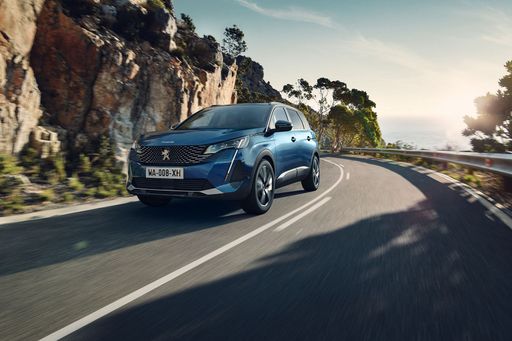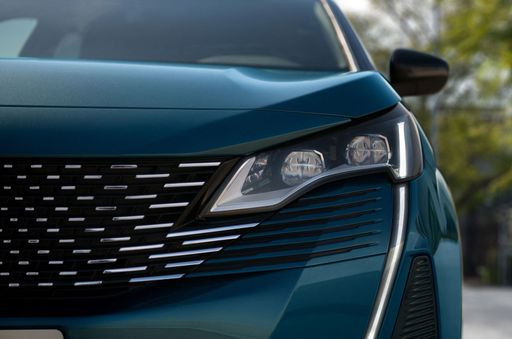Peugeot 5008 vs Hyundai IONIQ 9 - Differences and prices compared
Compare performance (325 HP vs 428 HP), boot space and price (37600 £ vs 58700 £ ) at a glance. Find out which car is the better choice for you – Peugeot 5008 or Hyundai IONIQ 9?
Costs and Efficiency:
When it comes to price and running costs, the biggest differences usually appear. This is often where you see which car fits your budget better in the long run.
Peugeot 5008 has a significantly advantage in terms of price – it starts at 37600 £ , while the Hyundai IONIQ 9 costs 58700 £ . That’s a price difference of around 21120 £.
In terms of energy consumption, the advantage goes to the Peugeot 5008: with 17.80 kWh per 100 km, it’s a bit more efficient than the Hyundai IONIQ 9 with 19.90 kWh. That’s a difference of about 2.10 kWh.
As for electric range, the Peugeot 5008 performs minimal better – achieving up to 669 km, about 49 km more than the Hyundai IONIQ 9.
Engine and Performance:
Under the bonnet, it becomes clear which model is tuned for sportiness and which one takes the lead when you hit the accelerator.
When it comes to engine power, the Hyundai IONIQ 9 has a clearly perceptible edge – offering 428 HP compared to 325 HP. That’s roughly 103 HP more horsepower.
In acceleration from 0 to 100 km/h, the Hyundai IONIQ 9 is evident quicker – completing the sprint in 5.20 s, while the Peugeot 5008 takes 6.50 s. That’s about 1.30 s faster.
There’s also a difference in torque: Hyundai IONIQ 9 pulls noticeable stronger with 700 Nm compared to 511 Nm. That’s about 189 Nm difference.
Space and Everyday Use:
Whether family car or daily driver – which one offers more room, flexibility and comfort?
Both vehicles offer seating for 7 people.
In curb weight, Peugeot 5008 is significantly lighter – 1700 kg compared to 2594 kg. The difference is around 894 kg.
In terms of boot space, the Peugeot 5008 offers minimal more room – 348 L compared to 338 L. That’s a difference of about 10 L.
When it comes to payload, Hyundai IONIQ 9 hardly perceptible takes the win – 643 kg compared to 640 kg. That’s a difference of about 3 kg.
Who wins the race in the data check?
The Peugeot 5008 is slightly ahead in the objective data comparison.
This result only shows which model scores more points on paper – not which of the two cars feels right for you.
Costs and Consumption
View detailed analysis
Engine and Performance
View detailed analysis
Dimensions and Body
View detailed analysis

Peugeot 5008
Peugeot 5008
The Peugeot 5008 blends Peugeot's sharp design with the space and versatility families actually need, wrapping clever packaging and a premium-feeling cabin in a crisp, SUV-like silhouette. It drives with more poise than you'd expect from a people carrier, serves up practical touches and flexible seating for everyday chaos, and still looks good when parked outside the school gates.
details



Hyundai IONIQ 9
The Hyundai IONIQ 9 is a bold step forward in the automotive world, combining cutting-edge electric technology with a sleek and modern design. This model stands out with its spacious interior and advanced features, ensuring both comfort and convenience for drivers and passengers alike. As Hyundai pushes the envelope in eco-friendly innovation, the IONIQ 9 represents the future of sustainable driving with its impressive range and performance capabilities.
detailsCosts and Consumption |
|
|---|---|
|
Price
37600 - 54200 £
|
Price
58700 - 74400 £
|
|
Consumption L/100km
2.7 - 5.6 L
|
Consumption L/100km
-
|
|
Consumption kWh/100km
17.8 - 18.6 kWh
|
Consumption kWh/100km
19.9 - 20.6 kWh
|
|
Electric Range
78 - 669 km
|
Electric Range
600 - 620 km
|
|
Battery Capacity
0.4 - 96.9 kWh
|
Battery Capacity
-
|
|
co2
0 - 127 g/km
|
co2
0 g/km
|
|
Fuel tank capacity
55 L
|
Fuel tank capacity
-
|
Dimensions and Body |
|
|---|---|
|
Body Type
SUV
|
Body Type
SUV
|
|
Seats
7
|
Seats
7
|
|
Doors
5
|
Doors
-
|
|
Curb weight
1700 - 2344 kg
|
Curb weight
2594 - 2689 kg
|
|
Trunk capacity
294 - 348 L
|
Trunk capacity
338 L
|
|
Length
4791 mm
|
Length
-
|
|
Width
1895 mm
|
Width
1980 mm
|
|
Height
1694 mm
|
Height
-
|
|
Max trunk capacity
2178 - 2232 L
|
Max trunk capacity
-
|
|
Payload
596 - 640 kg
|
Payload
586 - 643 kg
|
Engine and Performance |
|
|---|---|
|
Engine Type
Electric, Petrol MHEV, Plugin Hybrid
|
Engine Type
Electric
|
|
Transmission
Automatic
|
Transmission
Automatic
|
|
Transmission Detail
Reduction Gearbox, Dual-Clutch Automatic
|
Transmission Detail
Reduction Gearbox
|
|
Drive Type
Front-Wheel Drive, All-Wheel Drive
|
Drive Type
Rear-Wheel Drive, All-Wheel Drive
|
|
Power HP
145 - 325 HP
|
Power HP
218 - 428 HP
|
|
Acceleration 0-100km/h
6.5 - 10.2 s
|
Acceleration 0-100km/h
5.2 - 9.4 s
|
|
Max Speed
170 - 220 km/h
|
Max Speed
-
|
|
Torque
230 - 511 Nm
|
Torque
350 - 700 Nm
|
|
Number of Cylinders
3 - 4
|
Number of Cylinders
-
|
|
Power kW
107 - 239 kW
|
Power kW
160 - 315 kW
|
|
Engine capacity
1199 - 1598 cm3
|
Engine capacity
-
|
General |
|
|---|---|
|
Model Year
2024 - 2025
|
Model Year
2025
|
|
CO2 Efficiency Class
A, D, B
|
CO2 Efficiency Class
A
|
|
Brand
Peugeot
|
Brand
Hyundai
|
Is the Peugeot 5008 offered with different drivetrains?
Available configurations include Front-Wheel Drive or All-Wheel Drive.
